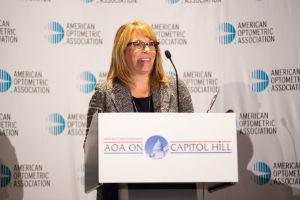This week, the Federal Trade Commission (FTC) finalized amendments to its Contact Lens Rule, which affects all U.S. eye care practices that fit contact lenses. It leaves in place undependable robocall prescription verification techniques, adds new paperwork burdens for doctors, and addresses some concerns regarding lens substitution without closing troubling loopholes. Details are available from the FTC, including a copy of the amended Rule and the agency’s press release.
These decisions by the FTC are imprudent and of serious concern. As evidenced by a new statement from the FTC Commissioner, the agency seemingly believes that consumer choice outweighs contact lens wearers’ health and well-being. This contradicts our conviction about your central and critical role in patient safety.
What does this mean for you? The amendments will come into force 60 days from when they are published in the Federal Register, making the anticipated effective date later this summer. This leaves little time for practices to understand their impact and how you’ll need to comply. We urge you to familiarize yourself and your staff with the updates. CooperVision will soon provide a series of tools to assist your practice as it prepares.
CooperVision actively shared information and insights with the FTC to assist its review, offering sound advice to support patient safety. Likewise, we continue to partner with the Health Care Alliance for Patient Safety, the American Optometric Association, the Contact Lens Institute and other industry bodies to elevate the importance of the doctor-patient relationship with the agency. While that guidance went largely unheeded by the FTC, our resolve to protect quality care has only grown stronger.
The FTC’s decision renews our focus on the need for a legislative solution to address some of these issues. For instance, CooperVision will continue our leadership role with the Health Care Alliance for Patient Safety and the profession to pass the Contact Lens Prescription Verification Modernization Act. This bill (H.R. 3975) was introduced in the House of Representatives in 2019 and has bipartisan support. It seeks to curtail outdated passive verification techniques (i.e., robocalls) in favor of modern technologies.
We understand that the FTC’s ruling has further complicated your ability to practice, especially at a time when so many of you are contending with COVID-19 challenges. You are on the front lines of this pandemic, facing pressures only compounded by these new administrative hurdles. Please know that CooperVision will do everything possible to help you abide by the regulations, while at the same time continuing to be a strong voice on your behalf—and the behalf of the 45 million Americans who wear contact lenses—in our nation’s capital.
Best regards,
Michele Andrews, OD
Senior Director, Professional and Academic Affairs, North America








